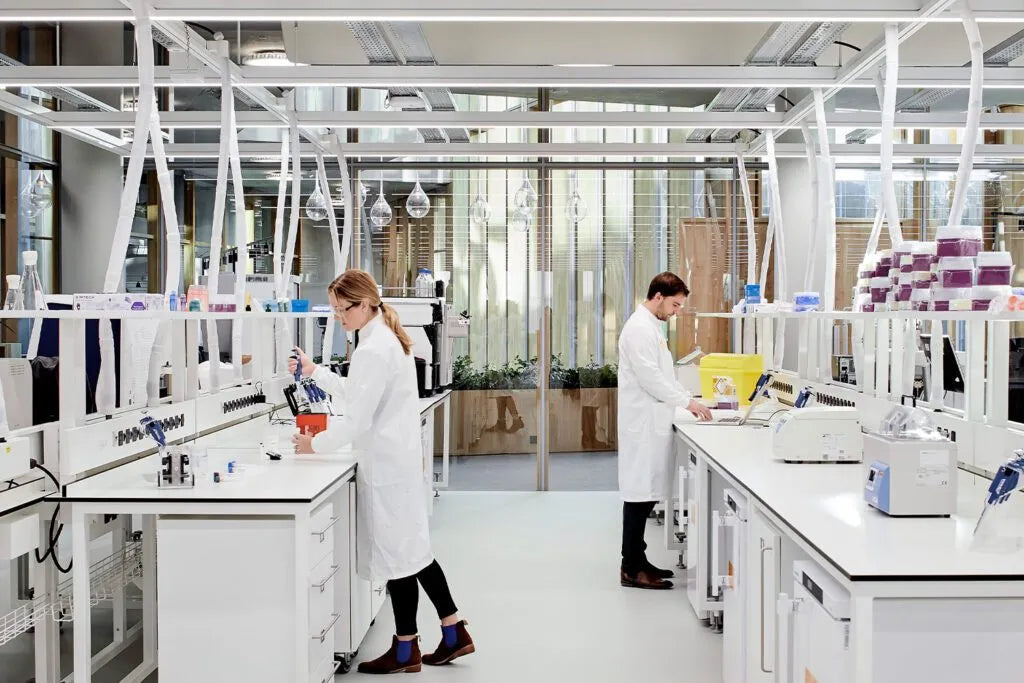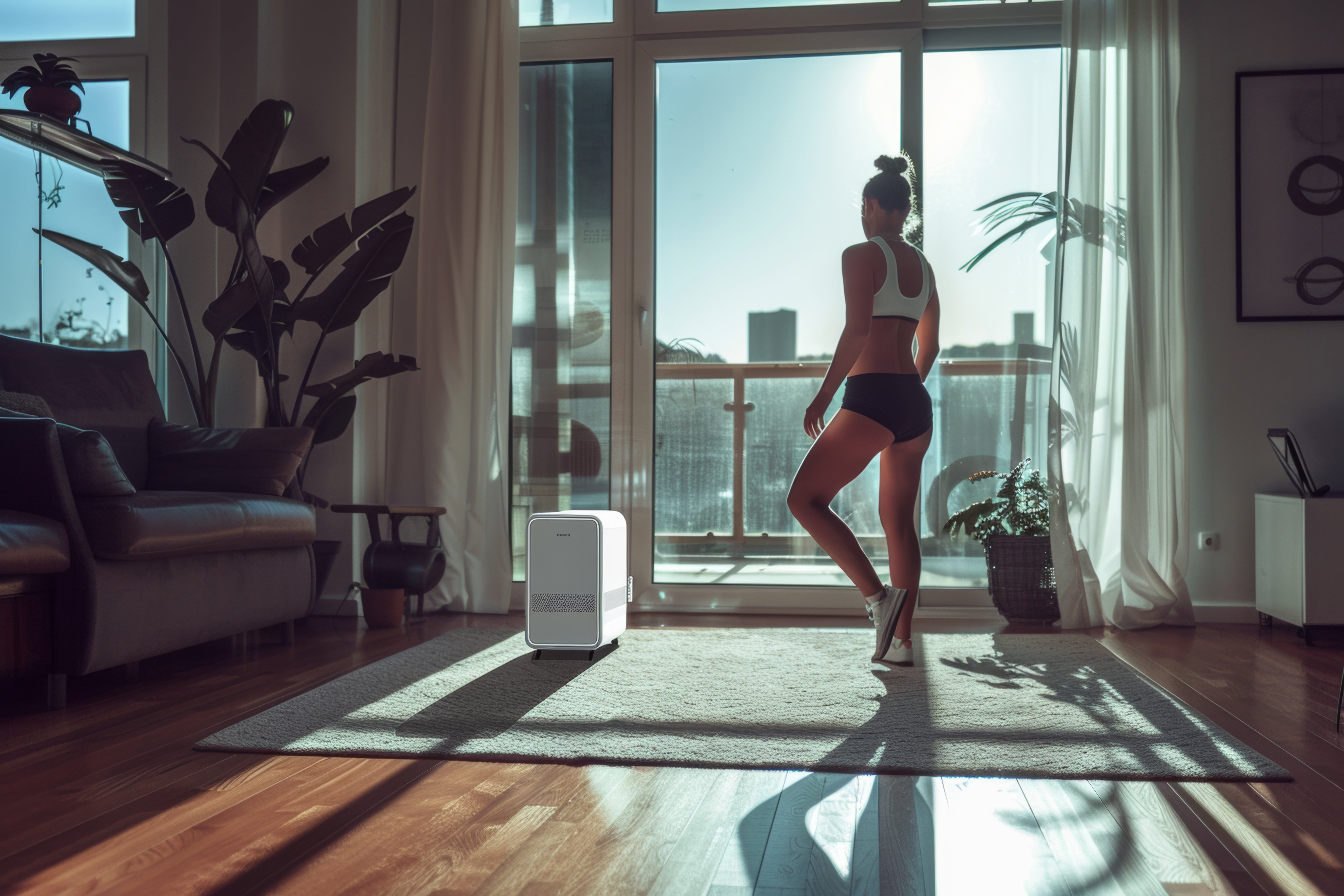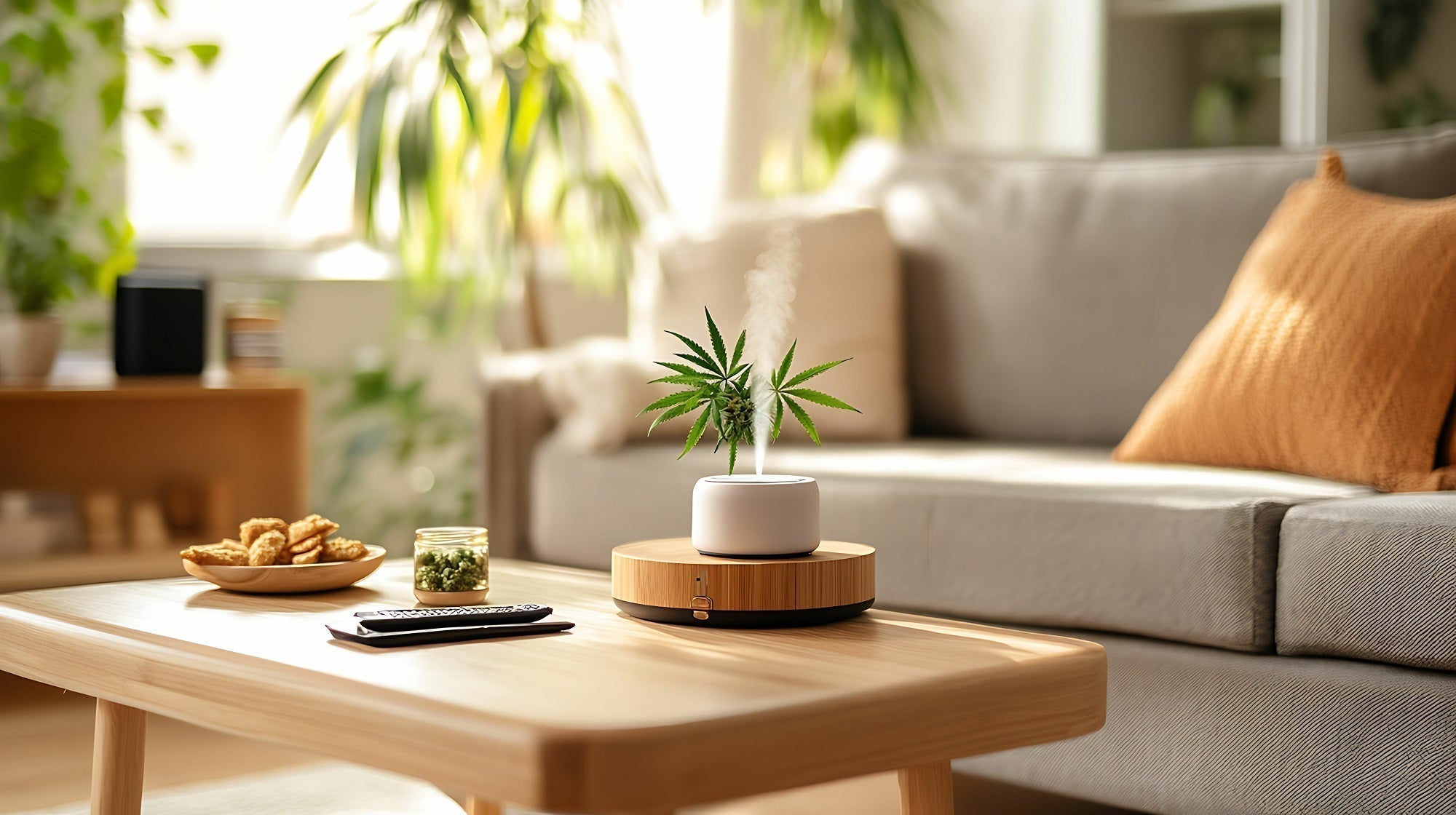Not to be sneezed at: why air purifiers are good for treating hayfever

Sneezing. Itchy eyes. Runny nose. If you’re a hayfever sufferer, spring and summer herald warmer months but also unwelcome side effects.
You may have tried many things to reduce your hay fever symptoms over the years, including staying inside. Unfortunately, pollen particles can drift through open windows and be carried inside on our clothes and skin.
So what can you do? Well, an air purifier may well be your secret weapon against the pollen, dust mites and pet dander that can trigger your hay fever allergies.
 The best way to limit an allergic reaction to irritants such as pollen is to eliminate your exposure to them – easier said than done, right? But with an air purifier in your home or office, all the hard work is done for you.
The best way to limit an allergic reaction to irritants such as pollen is to eliminate your exposure to them – easier said than done, right? But with an air purifier in your home or office, all the hard work is done for you.
Rather than pollen getting stuck in your eyes, up your nose or down your throat, MedicAir air purifiers force the allergens through an antibacterial coated filter called a High-Efficiency Particulate Air (HEPA) filter. These filters are so fine that they capture and remove particles measuring as little as 0.3 microns from the air. They then deliver a flow of clean, fresh air back into a room and repeat the process over and over again.
Air purifiers like the MedicAir Pro and MedicAir Pro Mini are clinically proven to remove 99.7% of pollutants from the air in a room, including pollen particles.
 You won’t be surprised to learn that not all air purifiers are created equal. Many cheap air purifiers simply do not have the level of technology needed to effectively remove small allergens from indoor spaces.
You won’t be surprised to learn that not all air purifiers are created equal. Many cheap air purifiers simply do not have the level of technology needed to effectively remove small allergens from indoor spaces.
There are also air purifiers on the market that don’t perform well in laboratory tests and some that are not independently tested in the first place. All MedicAirMedicAirair purifiers, on the other hand, are tested and certified by world-renowned independent laboratories for quality and efficiency – so you can, literally, breathe easily.
CADR Rate – The CADR rating show how efficient an air purifier is at actually removing the three main indoor pollutants, pollen, smoke and dust from a room. Generally speaking, a higher CADR rating means quicker removal of the offending allergens. We recommend choosing a machine with enough air volume to process all the air in your largest room at least 3 times an hour. The MedicAirPro, for example, has a CADR of 605 which means it is effective for large spaces up to 250 m2. To help you get the right air purifier for your room – and your hay fever – why not try our simple room size calculator?
For more information on tackling hay fever allergies using an air purifier, speak to us today.
You may have tried many things to reduce your hay fever symptoms over the years, including staying inside. Unfortunately, pollen particles can drift through open windows and be carried inside on our clothes and skin.
So what can you do? Well, an air purifier may well be your secret weapon against the pollen, dust mites and pet dander that can trigger your hay fever allergies.
Air purifiers are clinically-proven to remove pollen particles from the air

Rather than pollen getting stuck in your eyes, up your nose or down your throat, MedicAir air purifiers force the allergens through an antibacterial coated filter called a High-Efficiency Particulate Air (HEPA) filter. These filters are so fine that they capture and remove particles measuring as little as 0.3 microns from the air. They then deliver a flow of clean, fresh air back into a room and repeat the process over and over again.
Air purifiers like the MedicAir Pro and MedicAir Pro Mini are clinically proven to remove 99.7% of pollutants from the air in a room, including pollen particles.
Getting the best air purifier for your hay fever needs

There are also air purifiers on the market that don’t perform well in laboratory tests and some that are not independently tested in the first place. All MedicAirMedicAirair purifiers, on the other hand, are tested and certified by world-renowned independent laboratories for quality and efficiency – so you can, literally, breathe easily.
When choosing an air purifier to help with hayfever, here are two of the most important things to look out for:
HEPA Filter – this stands for high-efficiency particulate air filter, and uses a combination of particle trapping mechanisms. EU standards state that, to use the term HEPA, a filter must remove at least 99.95% of tiny particles with a 0.3u03bcm (micron) in diameter. Look for air purifiers that have a minimum HEPA 13 and above (The MedicAirPro Mini, for example, has an anti-bacterial coated HEPA H14 filter, which is medical grade technology). And don’t be tempted to buy those with a marketing name like HEPA-type filter, as it might not meet the same European standards.CADR Rate – The CADR rating show how efficient an air purifier is at actually removing the three main indoor pollutants, pollen, smoke and dust from a room. Generally speaking, a higher CADR rating means quicker removal of the offending allergens. We recommend choosing a machine with enough air volume to process all the air in your largest room at least 3 times an hour. The MedicAirPro, for example, has a CADR of 605 which means it is effective for large spaces up to 250 m2. To help you get the right air purifier for your room – and your hay fever – why not try our simple room size calculator?
For more information on tackling hay fever allergies using an air purifier, speak to us today.
Recent Blogs
Independent Global Testing Confirms MedicAir’s Filtration Excellence
Two of MedicAir’s flagship systems – the MedicAir Pro and MedicAir Pro Max – have been independently verified for their outstanding performance in real-world environments, following rigorous testing conducted in Kuwait by international air filtration expert Dr Iyad Al-Attar.
2025/09/03
24 min read
Heatwaves and Indoor Air Quality: How MedicAir Safeguards Health and Productivity
The recent heatwave has brought swelteringly high temperatures across the UK, significantly impacting indoor air quality (IAQ) and indoor environmental quality (IEQ).
2025/07/14
33 min read
Why Indoor Air Quality Matters for Cannabis Grow Rooms
With MedicAir, you get more than just air purification–you get peace of mind, knowing your plants are thriving in a controlled, contaminant-free environment.
2025/04/11
42 min read


